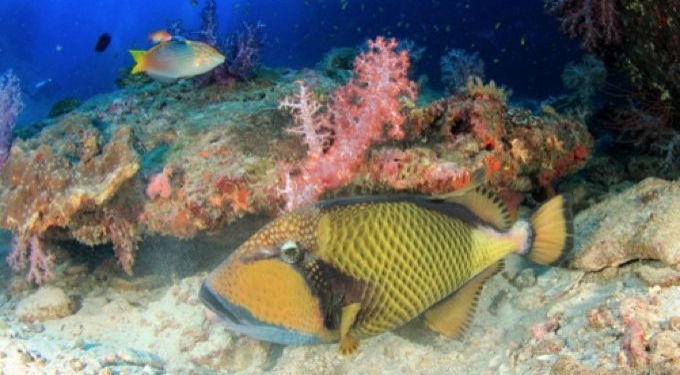By Jenn French
 Oceans around the world are being negatively impacted by human choices in a big way, and more than ever need to be protected right now. For many people though, it can be a little tough to know what to actually do, on an individual basis, to make a difference. Happily, there are multiple choices you can make which will make a positive change and ensure you are a good steward. Read on for some key ways you can help to protect the ocean today.
Oceans around the world are being negatively impacted by human choices in a big way, and more than ever need to be protected right now. For many people though, it can be a little tough to know what to actually do, on an individual basis, to make a difference. Happily, there are multiple choices you can make which will make a positive change and ensure you are a good steward. Read on for some key ways you can help to protect the ocean today.
Dispose of Trash Thoughtfully
The first thing you can do is always dispose of trash thoughtfully. This refers to litter at and near beaches in particular, but is also relevant anywhere you go – after all, trash can end up washing into oceans even if it didn’t start out near the water.
It is important to clean up after yourself as this keeps oceans more clear of trash which can not only pollute the water and contaminate and kill marine life, but also end up harming creatures which live in it and around it. For instance, animals can mistake various types of garbage as food, which can poison, choke, or otherwise harm them; plus they can get caught in or amongst rubbish and drown, get cut, or be hurt in other ways. Plastic in particular is very harmful for marine life, so you can also make a difference by avoiding buying or using plastic containers wherever possible.
Reduce Your Carbon Footprint
While you might not initially link your energy consumption with harm to the oceans and the creatures in it, reducing your carbon footprint can help. This is due to the fact that humans cause increases in greenhouse gas emissions in the atmosphere, through the burning off of fossil fuels in particular. These emissions increase the carbon dioxide levels in the atmosphere, and contribute to rising sea temperatures and sea levels (all of which threatens marine species).
As a result, everything you do to reduce your carbon footprint is a win for the environment. You can make simple changes which, on a daily basis, really add up. For instance, take public transport, ride a bike or walk rather than driving your own vehicle everywhere; turn off lights and electronics when they’re not being used; purchase low-energy light bulbs; and don’t leave heating and air-conditioning units on when you’re not home.
 Avoid Chemicals
Avoid Chemicals
Another important step you can take to help the oceans and marine life is to avoid using chemicals as much as possible, and to ensure that the ones you do use don’t end up going into the soil or down the drains where they can end up in the waterways.
You should make sure that you properly dispose of hazardous materials (such as motor oil and various other types of chemicals) so that they don’t end up washing into coastal areas. These types of materials can pollute the water and decrease the overall health of oceans. Aquatic creatures have specific needs as far as the pH level, temperature, and amount of light is concerned. When detergents, petroleum products, batteries, metals, paints, and other toxins get into oceans they can drastically affect wildlife’s ability to survive and thrive.
Fertilizers, in particular, are a real danger. The excess often ends up reaching oceans eventually, and can contribute to lower levels of oxygen in the water. In turn, this can cause marine life, such as fish and shrimp, to die or have to flee the area. You might also want to think about donating your boat to a good cause if you want to help the oceans. The chemicals which are often used to run, clean, and maintain watercraft regularly leach into the water and impact the environment negatively.
Eat Less Seafood
It is also important to think about cutting back on the amount of seafood you eat. Scarily, reports into overfishing have shown that large-fish populations are collapsing at alarming rates. It was estimated back in 2003 that industrial fishing had reduced the number of large ocean fish to only 10 percent of their pre-industrial population. In a study of catch data published in Science journal in 2006, it was predicted that, if fishing rates continue unabated, all of the world’s fisheries will have collapsed by 2048.
This rate of overfishing is also causing commercial fishing fleets to now go deeper into the ocean, and farther down the food chain, to try and get their catches. In turn, this is triggering a chain reaction that’s upsetting the delicate, and ancient, balance of the biologic system of the sea.
In addition, because of the lower fish populations but higher demand as human populations increase, the fishing industry is turning to super trawling or gillnetting methods to catch every possible fish. The issue with this is that it means many other sea creatures, besides the target catch, are taken out of oceans, including manta rays and turtles. They are typically left to die on board fishing vessels once this occurs. Hundreds of thousands of dolphins, whales, porpoises, sea turtles, sharks, seals, and other marine life also gets entangled and left for dead in fishing gear every year.
















